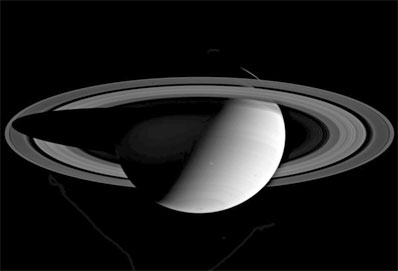
Spaceflight Now +

|

|

|

|

Premium video content for our Spaceflight Now Plus subscribers.

Titan up close
 Scientists reveal stunning pictures of Saturn's moon Titan and other results during this news conference from July 3. (38min 17sec file) Scientists reveal stunning pictures of Saturn's moon Titan and other results during this news conference from July 3. (38min 17sec file)
 Play video Play video

Saturn ring pictures
 Cassini's stunning close-up images of the rings around Saturn, taken just after the craft entered orbit Thursday morning, are presented with expert narration by Carolyn Porco, the mission imaging team leader. (8min 39sec file) Cassini's stunning close-up images of the rings around Saturn, taken just after the craft entered orbit Thursday morning, are presented with expert narration by Carolyn Porco, the mission imaging team leader. (8min 39sec file)
 Play video Play video

 Become a subscriber Become a subscriber
 More video More video

|

|

|

|

|

|

Saturn in full view for Cassini spacecraft
CASSINI PHOTO RELEASE
Posted: August 2, 2004
Two weeks after orbit insertion, Cassini glanced back at Saturn, taking in the entire planet and its expansive rings. Currently it is summer in Saturn's southern hemisphere. Notable here is the bright spot located near the planet's southern hemisphere, where the line from the day and night side of the planet meets. The angle of illumination hints at Saturn's tilt relative to the Sun.

Credit: NASA/JPL/Space Science Institute
Download a larger version of image here
|
The image was taken in visible red light with the Cassini spacecraft wide angle camera on July 13, 2004, from a distance of about 5 million kilometers (3.1 million miles) from Saturn. The Sun-Saturn-spacecraft, or phase angle of this image is 95 degrees. The image scale is 299 kilometers (186 miles) per pixel. Contrast has been enhanced slightly to aid visibility.
The Cassini-Huygens mission is a cooperative project of NASA, the European Space Agency and the Italian Space Agency. The Jet Propulsion Laboratory, a division of the California Institute of Technology in Pasadena, manages the Cassini-Huygens mission for NASA's Office of Space Science, Washington, D.C. The Cassini orbiter and its two onboard cameras, were designed, developed and assembled at JPL. The imaging team is based at the Space Science Institute, Boulder, Colo.
|

|

|

|
|



